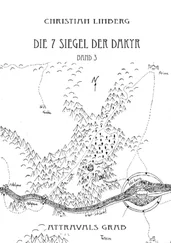Maybe when he went into her room to calm her down that night, he whispered stop crying, and tomorrow I’ll take you to the zoo.
“Look,” Paul said. “I can leave, complain to someone, get a writ, come back. All I want to do is see her. I won’t say a word to her. Promise.”
HE BROKE HIS PROMISE.
Not on purpose.
After Dr. Sanji had relented, he followed her down one ward and up another. He found himself in a kind of dayroom. Board games were scattered across several small tables like props—no one was playing. A TV in the corner was tuned to a talk show.
There were about twelve or thirteen kids there. It could’ve been the lunchroom in a local high school, various cliques engaged in vibrant discussion. If you looked closer, it was more like the conversations you hear in sandboxes—two- and three-year-olds talking at each other.
When an enchanting-looking girl of about fourteen stepped up to him and asked if it was true that hematite had been detected on Mars, he said I don’t know.
He realized he’d broken his promise to Dr. Sanji when the doctor said hello to her.
“Hello, Ruth, how are you today?”
“Fair to middling,” she said. “And you? How did you play the back nine yesterday?”
“About as well as I played the front nine,” Dr. Sanji said. “Incompetently. Thank you for asking.”
Galina’s granddaughter, Paul thought.
Ruth.
“I asked this man here about the recent discoveries on Mars,” she said. “Hematite would suggest there was water at one time. Water would suggest there was life. Life on Mars, what a wondrous notion.”
She was dressed quite ordinarily, worn jeans and a T-shirt that exposed an inch or so of adolescent stomach. Her eyes, Paul noted, were still as beautiful as Rachel remembered them—wide, deep brown, and radiating an undeniable intelligence.
He’d expected that most kids on this ward lived on Mars.
Ruth apparently studied it—with the avid interest of an astronomer-in-training.
“And would you like that?” Dr. Sanji asked her. “Little green men?”
“I’m afraid little green men would scare the bejesus out of me,” Ruth said.
Okay, Paul thought, there was something odd about the way she spoke. Not just the evident smarts. Wondrous . . . bejesus. It was as if she’d learned human discourse from books. As if she’d wandered out of an old-fashioned novel.
“I would much prefer a few one-celled amoebas,” she said, smiling in Paul’s direction. “Say, I’ve got a knock-knock joke for you. Knock, knock.”
“Who’s there?” Paul answered, the straight half of that new comic sensation, Breidbart and Goldstein.
“A,” she said.
“A who?”
“Amoeba.”
“That’s very funny,” Paul said.
“The appropriate response would’ve been laughter,” Ruth said.
“I’m laughing inside,” Paul said, duly chastened. “Believe me.”
“That’s odd. I do the same thing all the time . Laugh inside.”
In another place, he thought, he would’ve found her precociously delightful. But here you were forced to look at things in a different light—the sickly fluorescence of a mental ward.
He’d followed his hunch and found the nest, but in it was an odd bird.
“Better to laugh than cry,” Paul said. “Yes?”
“Oh, I do a fair amount of crying as well. Don’t I, Dr. Sanji?”
Dr. Sanji said, “Yes. You are one of our better criers, Ruth. For sure.”
“Want to see?” she asked Paul.
“Oh, I don’t know,” Paul said. “Maybe later. We can have a contest.”
“I’ll win, hands down. What’s the prize?”
“Hmmm . . . ,” Paul said. “I’ll have to think about that one.”
Dr. Sanji shot him a look that said time’s up. He’d broken his promise ten times over. He’d come, he’d seen, it was Ruth, he couldn’t help thinking, who’d conquered.
Dr. Sanji walked him to the door.
Outside the dayroom Paul said, “She’s quite remarkable.”
Dr. Sanji nodded, smiled. “Yes, quite.”
“She seems, almost . . . normal.”
“You said almost, Mr. Breidbart. Why?”
“I’m not sure. I got the feeling, I don’t know, that she was playing a part. Like a very good actress. Does she read a lot?”
“Volumes. Like the others eat. You’re fairly perceptive about our Ruth playing roles. I call her the chameleon. She sometimes becomes what she reads. Or whom she’s listening to. Sometimes I honestly feel like I’m talking to myself. Ruth, of course, has never been anywhere near New Delhi. She could make you think differently.”
“Why does she do that?” Paul said.
“Why? Are you asking for a diagnosis, Mr. Breidbart? I’m afraid you won’t get one from me.”
“Because you don’t know?”
“Because I’m not at liberty to discuss it. This is old territory, is it not?”
Paul nodded.
“I will ask you this,” Dr. Sanji said. “Why does a chameleon change its skin color to that of its surroundings?” When Paul hesitated, she answered for him. “Come, Mr. Breidbart, it’s Biology 101. A chameleon changes skin color to protect itself.”
“From what?”
“Predators.”
FORTY-TWO
A, a car backfiring.
B, a gun firing.
C, a firecracker.
D, none of the above.
Joanna was awakened by a series of loud, rapid bursts. In the moment when her heart took up temporary residence in her throat, she devised a multiple-choice test in an effort to divert fear from running rampant. She picked A, a car backfiring, because it was the only choice offering a modicum of comfort and plausibility.
Unfortunately, she was totally onto her act of self-deception.
Car? What car?
She couldn’t help remembering that Maruja always feared that the forces of good—admittedly a relative term in Colombia—would try to rescue her and, in so doing, kill her. That they’d barge in guns blazing and set off a conflagration resulting in her bloody demise. It turned out she would’ve been better off worrying about the menace closer to home.
Joanna heard the bursts again. Louder, sharper, like the cracks of a bullwhip.
She hugged the wall—her one and only friend, if you didn’t count Galina, that is, who’d smuggled her back into the house after her ill-fated escape attempt. The problem with gaining Galina as a friend was that you had to be kidnapped by her first. And there was her annoying habit of remaining blind, deaf, and dumb to the criminal flaws in her housemates.
The door swung open, slamming against the wall, causing little flecks of plaster to fly into the air.
Something else flew into the room. The guard Puento, propelling himself through the door like a man shot out of a cannon. His rifle was slung down off his hip in ready-fire position.
Okay, Joanna thought, I’m dead.
Puento scoped the room with nervous-looking eyes. By the time he located Joanna in the right corner, she’d stopped hugging the wall. She was still firmly attached to it, courtesy of her leg chain. Sitting straight regardless, shoulders back, ready to go with dignity.
She was going somewhere else first.
Puento began unlocking her leg chain, sweat dripping off his glistening forehead and causing him to periodically stop and try to wipe it out of his eyes.
“Qué pasa?” Joanna managed to get out, about the limit of her Spanish vocabulary.
Puento didn’t answer. He was engrossed in the intricacies of putting key into lock, one ear evidently trained on the outside commotion. That was her explanation for his nonresponse, and she was sticking to it. The other explanation would be that he didn’t want to inform Joanna that he was taking her someplace to kill her.
Читать дальше












